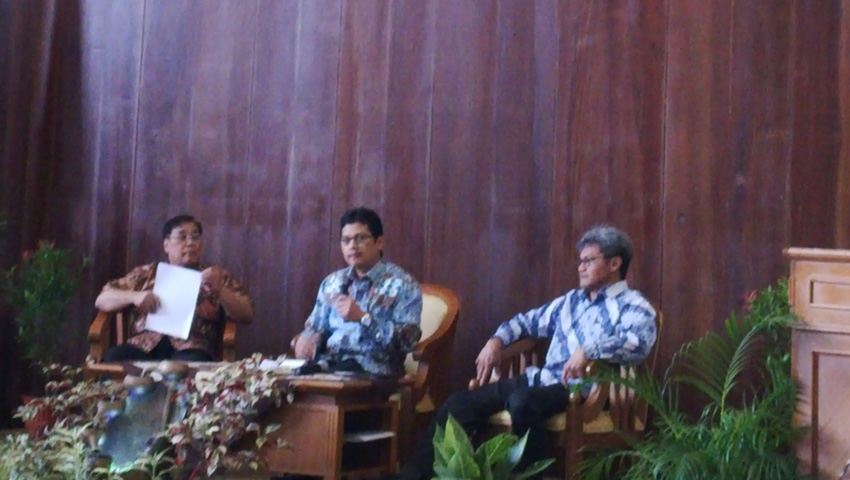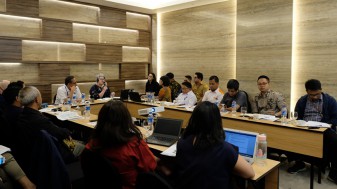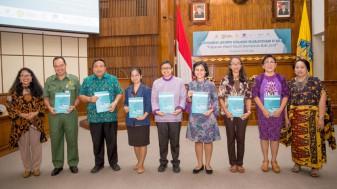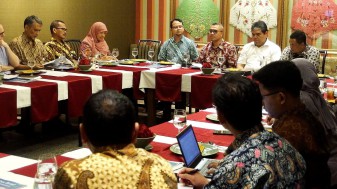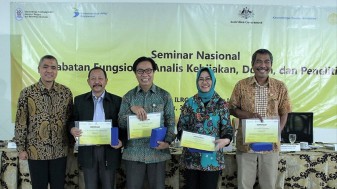Akademi Ilmu Pengetahuan Indonesia (AIPI) in cooperation with Kemenristek-Dikti (Ministry of Research, Technology and Higher Education), and University of Gadjah Mada organised a kick-off meeting about national policy on S&T and higher education. The meeting brought together policy makers and scientists to discuss a number of issues, namely architecture of higher education, Research University (as opposed to teaching university), liberal arts and multi-/inter-/trans-disciplinary program/research, character building and innovation. Prof. Dr. Dwikorita Karnawati, Rector UGM, and Prof Sangkot Marzuki and Prof Dr Sofian Effendi, AIPI opened the meeting. Officials from Kemenristek-Dikti from Secretary General, Directorate Generals and Directorates attended the meeting and were attentive to the discussions.
The Coordinating Minister of Human Development and Culture (Kemenko PMK) requested Kemenristek-Dikti to produce a grand design by end of the year. The Ministry is requesting AIPI for advice for the grand design. The Ministry also plans to bring in other advices from the National Research Council (DRN) and the Higher Education Council (DPT) as well as existing knowledge products to be reviewed and used by a number of working groups from Kemenko PMK and Kemenristek-Dikti.
The two-day meeting is a kick-off to a larger meeting or seminar that planned to be organised by end of the year. AIPI plans to produce a White Paper on science, technology and higher education as inputs and knowledge to a Grand Design on science, technology and higher education to be formulated by Kemenristek-Dikti.
At the end of the meeting Prof Sangkot Marzuki (AIPI) and Dr. Muhammad Dimyati (DG at Kemenristek-Dikti) provided a summary of the two-day meeting as follows:
- Policy on S&T and higher education is a living document that regularly evaluated and improved.
- Need to undertake an extensive assessment in other Asian countries about the success and failure of policy and its implementation to address disconnect between university and research centers, and to revisit (or revisit) the regulations to reposition university and research centers to ensure positive synergy for the advancement of higher education and research.
- Higher education as a complex institution requires flexible space, autonomous to perform their function as “tri darma perguruan tinggi” so that every university can achieve their mission and vision as per regulations.
- Need to undertake thorough and careful preparations to enter the Asian century in order for Indonesia to become leader and not a follower.
- Need to develop and implement a liberal arts concept that covers capacity to write, critical thinking and conceptual communications.
- In order to produce innovation that solve problems faced by the nation, university needs to have and produce specialists and generalists who can work together.
- Need to strengthen scientific leadership who is capable to realize and manage a Research University that produce innovation and educated people to get a critical mass supported by sufficient numbers of quality researchers and scientists in different specialized fields, independent from bureaucratic environment.
- Government has gradually promoted autonomous university and financing outside state budget. However, with existing funding universities have not yet been competitive.
- In order to avoid brain drain, the country needs to invest more in providing incentives for private sector and community to support the development of higher education.
- The need for mutual critiques among scientific disciplines, which in practical reality can lead to a new science.
- The need for dialogue between ulemas and scientists to strengthen interdisciplinary approaches and interconnection between science and religion.
In his closing remarks Prof Sangkot Marzuki said, “The last two days are outstanding. We have an open dialogue between scientists with policymakers from Ministry of S&T and Higher Education. This is a promising start and the work ahead is a big job. We need to change the culture to make a larger change. There are bright spots. If this is handled together like this, I am sure that this would work for the development of our nation and state.”

